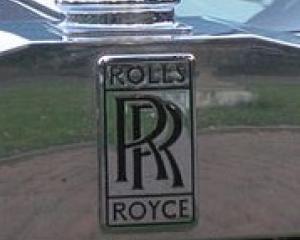The man accused of setting up a computer-related risk-mitigation insurance scheme which cost the Otago District Health Board $16.9 million over six years agreed yesterday in the High Court at Dunedin the words "risk mitigation" and "insurance cover" did not appear in any of the 16 contracts he signed between the board and a friend's company.
In answer to clarification questions from Justice Stevens, former health board chief information officer and head of IT Michael Swann accepted the definition of "agreement" in each of the 16 contracts related to "umbrella information technology services and supply agreements" and the umbrella agreement was critical to the whole insurance scheme.
Swann also agreed it would be hard to clarify the arrangement without that agreement which, it was now known, had never been signed or finalised.
"I had trouble dealing with parts of it," he said.
Justice Stevens then asked how the board could ever enforce the various agreements if the umbrella agreement had not been signed or completed on behalf of the board.
Swann suggested it was sometimes better to do business on goodwill rather than on contracts and that much board business had been done without contracts and without instructions in writing.
The judge's questions came at the end of two days of evidence from 47-year-old Swann who, with friend and business associate Kerry Harford (48), is on trial on three charges of dishonestly, and with intent to defraud, using 198 invoices from Sonnford Solutions, a Harford-owned company, to charge the board for something the Crown says was never provided.
During his testimony, Swann detailed how he devised the risk-mitigation scheme which would involve Sonnfords in providing the board with cover in the case of any major malfunction of the hospital's three main computers.
Because Sonnford's liability was limited to $50,000, with Swann-associated company Computer South Ltd underwriting the rest, the money received from the board was split 90% to 10% in favour of Computer South (Swann), with Harford retaining the 10%.
Under intensive cross-examination by Crown counsel Robin Bates, Swann agreed the umbrella contract had not been found, although he believed a hard copy had been in a folder on a shelf in his office just before his employment was terminated.
He denied a suggestion he had decided to say there was an umbrella agreement after hearing evidence from various Crown witnesses who told the court the 16 contracts between Sonnfords and the board did not make sense.
"I haven't just grabbed it out of thin air, evidenced by letters from [law firm] Chapman Tripp about how to use their [contract] templates back in 1998," Swann said.
"But you basically said they were a load of rubbish, that you didn't want to pay for them, and now it's the key to the whole thing," Mr Bates said.
Swann said he was instructed to question the Chapman Tripp bill.
He said he created the invoices and sent them to Harford, generally by email, for completion in accordance with the details provided.
Harford then sent them back to him, he printed them out and passed them to the finance department for payment, Swann said.
But he disagreed he had asked for "urgent" payment of some invoices on the basis they were for licences which were about to expire and, if the accounts were not paid, the whole system might not be able to be used.
He said he did not believe the system would have stopped working if there was no insurance on it.
"Harford wasn't going to cancel a multimillion-dollar contract because someone hadn't paid for a couple of weeks and you certainly weren't going to pull out, were you?" Mr Bates asked.
"No."
Asked why, if the umbrella contract was so difficult, he had not asked Chapman Tripp or a local lawyer for help, "rather than leaving it for six years", Swann said senior board executives Ross Black and Ewan Soper "expressly forbade" the use of lawyers and, as he had the templates, his view was they would "operate as such".
Swann agreed he had not declared any conflict of interest about his situation with Computer South, the company to which money was being paid by the board, but said he had spoken "many times" to board chief executive Brian Rousseau.
"So you thought getting millions of dollars doing something you were already being paid to do by the hospital board wasn't a conflict of interest?" Mr Bates asked, to which Swann replied Mr Rousseau took the view that if he [Swann] was not a shareholder or director of any of the companies that were trading entities, then the board had no interest in what he did.
Questioned about the words "right to use" on the contracts, Swann said he did not accept that was another way of saying "licences".
He said a contract for Soft AIX Tool Set Right to Use and Maintenance referred to several add-on products supplied by American companies installed on the machines under contract.
And, asked whether the supplying companies were charities, as there were no invoices relating to the products, Swann said payment had been made with a hospital credit card by a staff member who had since died.
Mr Bates asked whether, whenever the word "licence" appeared in the contracts, it should be interpreted as "a licence to print money", a suggestion to which Swann's counsel, John Haigh QC, objected.
Swann told Mr Bates he believed the IT-related expenditure during his time at the board had been "entirely appropriate".
The defence evidence has now been completed, Harford electing not to testify or call any witnesses.
Crown and defence counsel will put their closing arguments to the jury today and Justice Stevens has indicated he will sum up the case and send out the jury tomorrow.



